When it comes to selecting the right SEO and digital marketing tool, the “SEMrush vs Serpstat” debate often emerges among professionals. Both tools have made a significant impact in the digital marketing world, offering a range of features to enhance SEO, content marketing, PPC campaigns, and more. In this blog post, we’ll dive deep into a comparative analysis of SEMrush and Serpstat, exploring various aspects such as keyword research capabilities, SEO tools, content marketing features, and pricing plans. Whether you’re a seasoned marketer, a small business owner, or a freelance SEO specialist, this post aims to provide you with the insights needed to make an informed decision between these two powerful tools.
Table of Contents
User Interface and Ease of Use
When comparing SEMrush and Serpstat, a key aspect that immediately stands out is their user interface and overall ease of use. Both tools aim to simplify the complex tasks of SEO and digital marketing, but they approach user experience quite differently.
SEMrush: Intuitive and Feature-Rich
SEMrush boasts an intuitive interface that caters to both beginners and seasoned professionals. Navigating through its multitude of features is straightforward, thanks to a well-organized dashboard and clear, labeled sections. First-time users can easily find their way around, as the platform guides you through its diverse functionalities.
One notable feature is the sidebar menu, which clearly categorizes functions like keyword research, site audit, and competitor analysis. This categorization makes it easier for users to quickly find the tool they need without feeling overwhelmed.
Serpstat: Streamlined and User-Focused
Serpstat, on the other hand, offers a more streamlined interface. It focuses on providing a clutter-free environment, which is particularly appealing to users who prefer a more minimalist setup. The design is clean, and the tools are easily accessible, making the process of conducting SEO analysis less daunting for newcomers.
The platform’s strength lies in its straightforward approach to data presentation. Serpstat presents complex data in a digestible format, making it simpler for users to derive insights without needing to deep-dive into technical details.
Comparing Ease of Use
In terms of ease of use, both SEMrush and Serpstat shine in different ways. SEMrush’s robust feature set is complemented by its intuitive layout, making it a powerful tool for users who need comprehensive functionalities at their fingertips. Serpstat’s streamlined approach is perfect for those who value simplicity and quick access to key functionalities.
Ultimately, the choice between SEMrush and Serpstat in terms of user interface and ease of use depends on personal preference and specific needs. While SEMrush offers a more feature-rich environment, Serpstat attracts with its simplicity and straightforwardness.
In conclusion, when considering SEMrush vs Serpstat, it’s essential to evaluate how the interface and ease of use align with your workflow and SEO objectives. Both tools offer unique advantages in this regard, and selecting the right one can significantly impact your digital marketing efficiency.
Keyword Research Capabilities: SEMrush vs Serpstat
When discussing the focus keyword “SEMrush vs Serpstat”, a crucial aspect to compare is their keyword research capabilities. Both SEMrush and Serpstat are renowned for their robust keyword research tools, but they offer distinct features that cater to different user needs.
SEMrush Keyword Research
SEMrush is highly acclaimed for its extensive keyword database, which is one of the largest in the market. It provides comprehensive data on keyword volume, trend, difficulty, and CPC (Cost Per Click) values, which are essential for both SEO and PPC campaigns. Additionally, SEMrush offers the Keyword Magic Tool, a feature-rich utility that generates thousands of keyword suggestions, question-based keywords, and long-tail keyword opportunities. Its ability to group keywords semantically is particularly useful for creating focused content strategies.
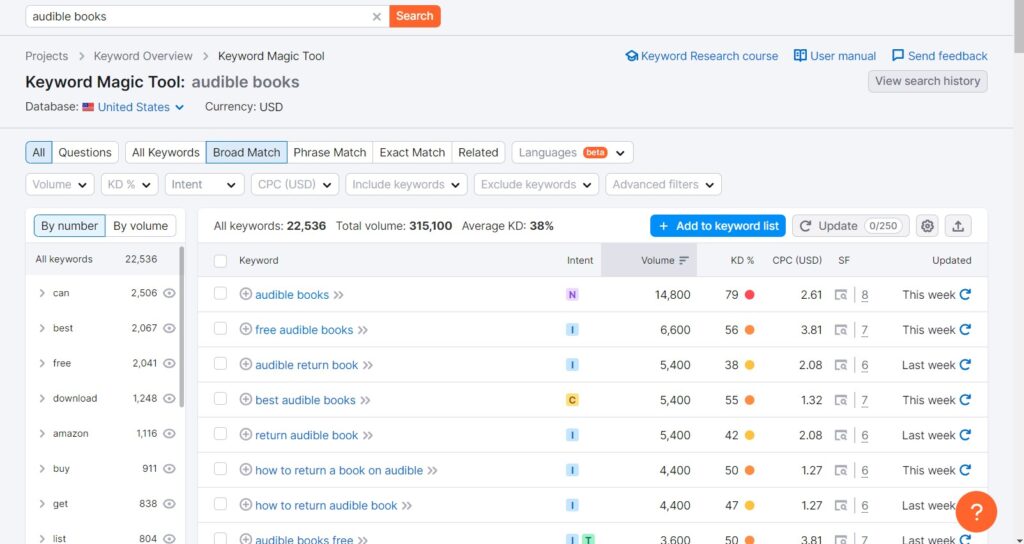
Serpstat Keyword Research
On the other hand, Serpstat offers a competitive keyword research tool with a focus on competitor analysis. It enables users to discover what keywords competitors are ranking for and identify gaps in their own strategies. Serpstat’s unique selling point is its ‘Keyword Difficulty’ feature, which helps users understand how hard it would be to rank for a particular keyword. It also provides a comprehensive list of search suggestions and variations, which are invaluable for expanding keyword portfolios.
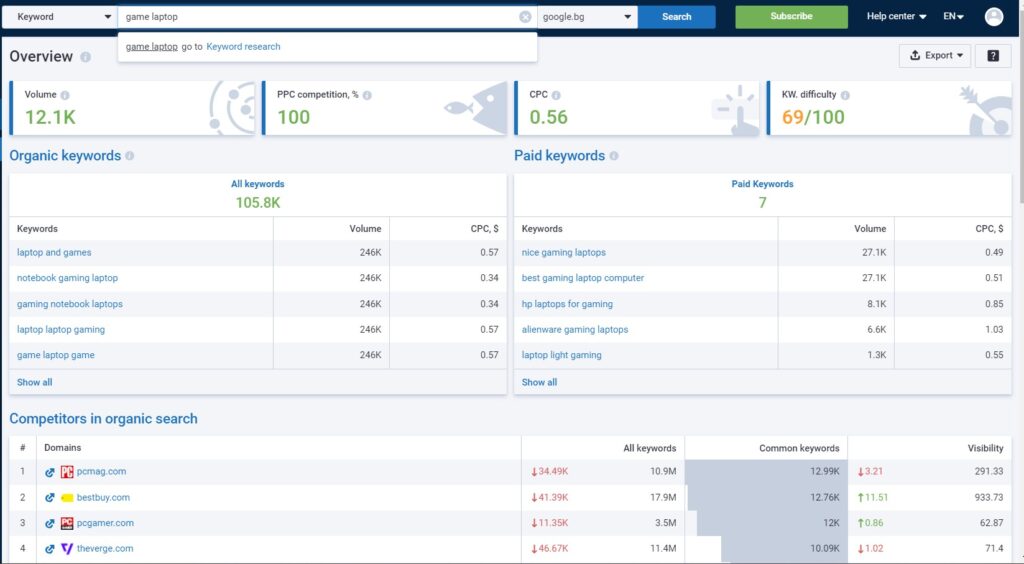
Comparative Insights
While SEMrush shines with its extensive keyword database and advanced grouping features, Serpstat stands out with its competitor-focused keyword research and difficulty analysis. SEMrush may be more suitable for marketers looking for a wide array of keyword suggestions and detailed analytics. In contrast, Serpstat is ideal for those who prioritize understanding the competitive landscape and seeking niche keyword opportunities.
In conclusion, both SEMrush and Serpstat offer powerful tools for keyword research, each with its unique strengths. Your choice between SEMrush vs Serpstat for keyword research should align with your specific SEO and content marketing needs.
SEO Tools and Features: SEMrush vs Serpstat
In the debate of “SEMrush vs Serpstat”, understanding the range and efficacy of their SEO tools and features is pivotal. Both platforms offer a suite of tools designed to optimize websites for search engines, but they have distinct strengths and functionalities that cater to varied SEO needs.
SEMrush SEO Tools
SEMrush is widely recognized for its comprehensive set of SEO tools. Its Site Audit tool is particularly noteworthy, offering an in-depth analysis of a website’s health by identifying issues like broken links, slow-loading content, and technical SEO errors. Another key feature is the Position Tracking tool, which allows users to track daily changes in keyword rankings and compare them with competitors. SEMrush also excels in backlink analysis, providing detailed insights into backlink profiles, including the quality and authority of backlinks.
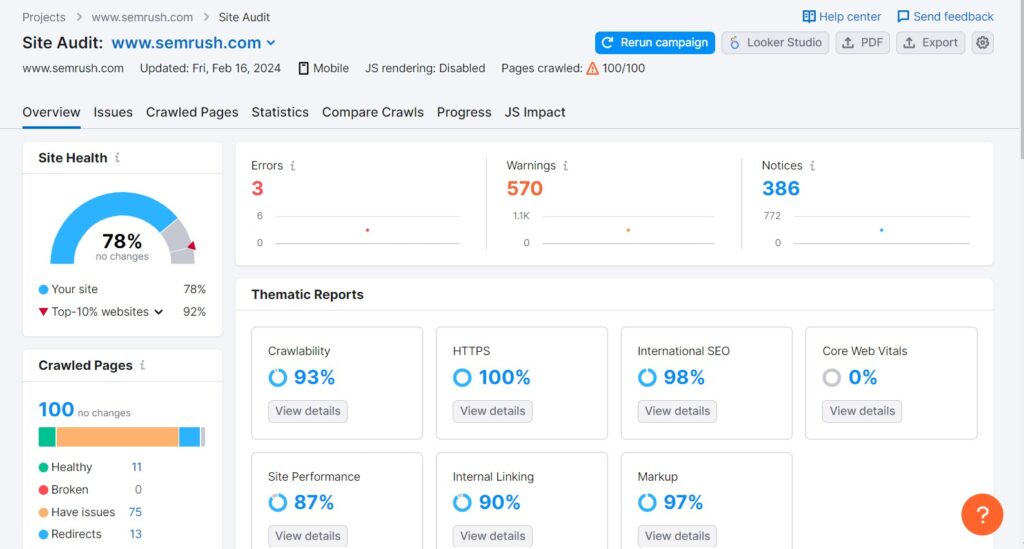
Serpstat SEO Features
Serpstat, while offering a similar range of SEO tools, has its unique strengths. Its Page Audit tool is user-friendly, giving actionable insights and recommendations for on-page optimization. The tool highlights issues like meta tag errors, content quality, and page performance. Serpstat also stands out with its Rank Tracker, which provides accurate tracking of website rankings across different search engines and regions. Additionally, its backlink analysis tool is robust, offering detailed reports on new and lost backlinks, and the ability to conduct a thorough competitor backlink analysis.
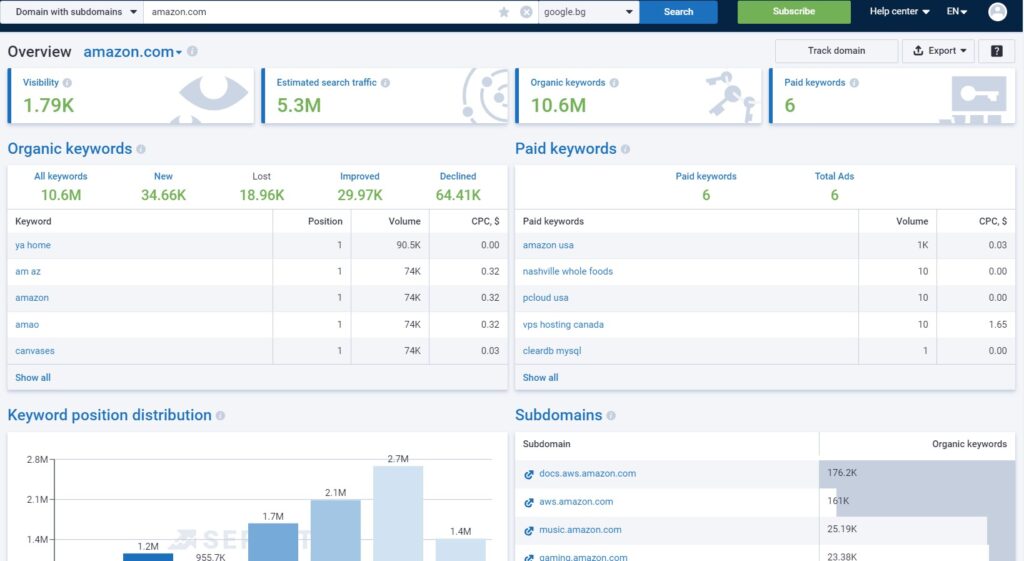
Comparative Analysis
Comparing SEMrush and Serpstat in terms of SEO tools, SEMrush offers a more extensive suite with deeper analytics, making it ideal for SEO professionals who need detailed, comprehensive data. On the other hand, Serpstat is more approachable for beginners or small businesses, offering straightforward tools with clear guidance and recommendations.
In summary, while both SEMrush and Serpstat provide a robust set of tools for SEO, the choice between them depends on the depth of analysis and ease of use you require. SEMrush is geared towards in-depth, analytical SEO work, whereas Serpstat offers simplicity and clarity in its tools and reports, making it accessible to a broader audience.
PPC Analysis: SEMrush vs Serpstat
Pay-Per-Click (PPC) analysis is a crucial component for digital marketers, and when considering tools for this purpose, “SEMrush vs Serpstat” is a common comparison. Each tool offers unique features for PPC analysis, catering to different aspects of PPC campaigns.
SEMrush for PPC Analysis
SEMrush is highly regarded for its comprehensive PPC analysis capabilities. It offers detailed insights into competitors’ PPC strategies, allowing users to see the keywords they are bidding on, their ad copy, and even the landing pages they are using. This level of detail is invaluable for businesses looking to understand their competitors’ strategies and find gaps in their own.
A standout feature in SEMrush is its ‘Advertising Research’ tool. It provides an extensive overview of competitors’ ad campaigns, including ad spend estimates and potential traffic. This tool is especially useful for businesses aiming to optimize their ad spend and improve ROI on their campaigns.
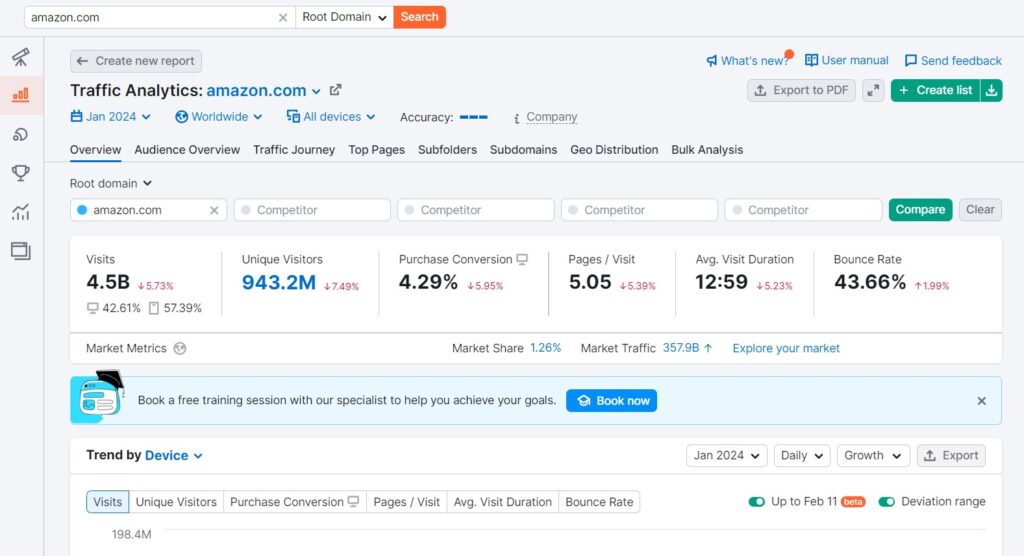
Serpstat for PPC Analysis
Serpstat, while not as extensive as SEMrush in PPC analysis, offers useful tools for businesses focusing on PPC. Its strength lies in providing data on competitors’ ads and keywords, which is helpful for crafting more effective PPC campaigns.
Serpstat’s PPC research tool allows users to explore the ad keywords used by their competitors, along with the associated ads running on Google. This can be particularly beneficial for identifying high-performing keywords and understanding the competitive landscape in paid search.

Comparative Insights
In the realm of PPC analysis, SEMrush stands out with its in-depth research capabilities, offering a broader range of data and insights into competitors’ ad strategies. This makes it a preferable choice for businesses heavily invested in PPC campaigns and those needing detailed competitor insights. Serpstat, while offering basic PPC analysis features, is more suited for users requiring a general overview of competitors’ PPC tactics without the need for extensive data.
In conclusion, while both SEMrush and Serpstat are equipped with PPC analysis tools, SEMrush offers a more detailed and comprehensive suite of features, making it ideal for in-depth competitor research and strategy optimization in PPC campaigns. Serpstat, with its more streamlined approach, is suitable for basic PPC research and smaller-scale campaigns.
Competitor Analysis: SEMrush vs Serpstat
In the world of digital marketing, understanding how your tools stack up in competitor analysis is vital. This is especially true when comparing SEMrush and Serpstat, two of the most prominent names in this arena. Let’s delve into their competitor analysis capabilities, a key aspect when considering “SEMrush vs Serpstat”.
SEMrush for Competitor Analysis
SEMrush offers a comprehensive suite of tools for competitor analysis. Its key feature is the ‘Domain Overview,’ which provides a snapshot of any competitor’s online performance, including traffic estimates, main organic competitors, and principal organic keywords. SEMrush also excels in backlink analysis, allowing users to study their competitors’ backlink strategies in detail. This includes examining the types of backlinks, the authority of linking domains, and the geographical distribution of these links.
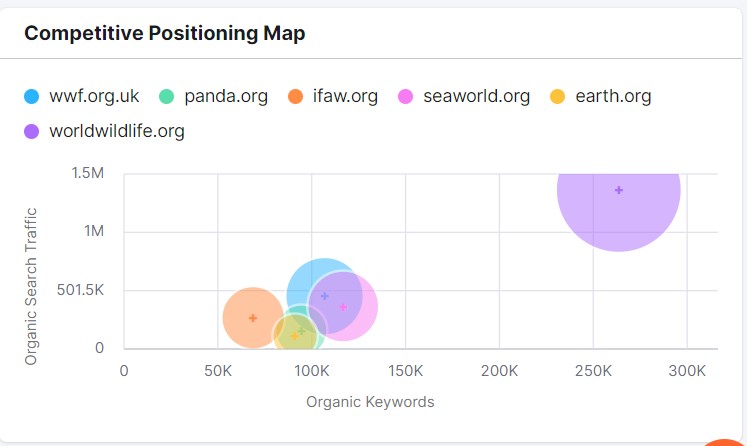
Another notable feature is SEMrush’s ‘Traffic Analytics’ tool, which offers insights into competitors’ traffic sources, visitor engagement, and overall online performance. This data is invaluable for businesses looking to understand their market position relative to their competitors.
Serpstat for Competitor Analysis
Serpstat, while smaller in database size compared to SEMrush, provides a focused and efficient approach to competitor analysis. Its strength lies in its ‘Competitor Graph’ feature, which visually maps out your competitors’ online strategies. This allows users to quickly identify new competitors and understand their keyword strategies.
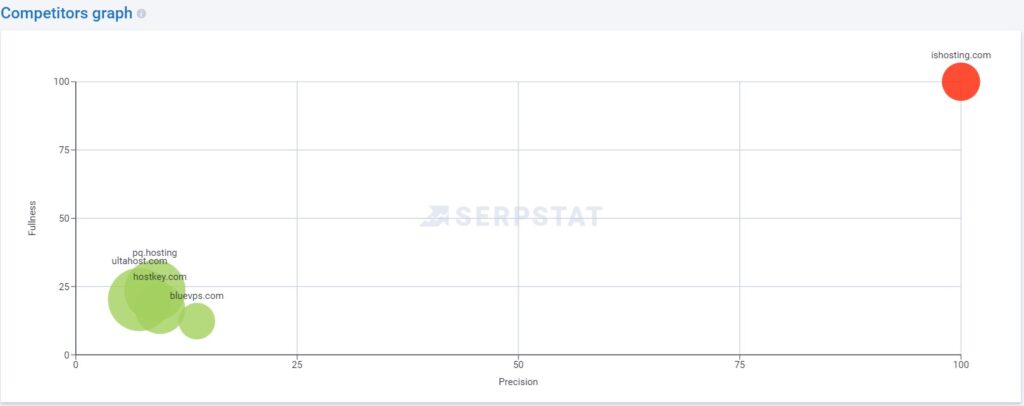
Serpstat also offers a ‘Domain vs Domain’ tool, where you can directly compare your website with competitors across various parameters like shared keywords, visibility, and search traffic. This tool is particularly useful for pinpointing gaps in your SEO strategy and identifying areas for improvement.
Comparative Insights
While SEMrush provides a broader range of data and deeper insights into backlink strategies and traffic analytics, Serpstat’s visual tools like the Competitor Graph offer a more user-friendly approach to identifying competitors and their strategies. SEMrush might be more suitable for businesses that require in-depth analysis and a wide range of competitor data. In contrast, Serpstat is ideal for those who need a more straightforward and visually-oriented competitor analysis.
In conclusion, both SEMrush and Serpstat bring unique strengths to the table in terms of competitor analysis. Your choice between SEMrush vs Serpstat should depend on the depth of analysis you require and your preference for data presentation.
Content Marketing Tools: SEMrush vs Serpstat
In the digital marketing realm, content is king. Thus, choosing the right tools for content marketing is critical. The comparison of “SEMrush vs Serpstat” in terms of content marketing tools is particularly pertinent for marketers seeking to enhance their content strategy.
SEMrush’s Content Marketing Tools
SEMrush offers a robust suite of content marketing tools designed to assist at every stage of content creation and optimization. Its ‘Content Marketing Platform’ is a comprehensive solution that includes:
- Topic Research Tool: Helps you find popular topics and headlines based on your keywords. This tool is invaluable for generating content ideas that resonate with your audience.
- SEO Content Template: Provides recommendations on how to structure your content to rank for specific keywords, including advice on readability, text length, and potential backlink sources.
- Content Audit: Analyzes your website’s content to identify performance issues and offers suggestions for optimization.
- Post Tracking: Allows you to monitor the performance of your published content in terms of user engagement and social shares.
Serpstat’s Content Marketing Tools
Serpstat, while not as extensive as SEMrush in content marketing, still offers useful tools for content creators. Its strengths lie in keyword research and competitor analysis, which are essential components of any content marketing strategy. Key features include:
- Keyword Research for Content Ideas: Identifies trending keywords and search queries that can inspire content creation.
- Competitor Content Analysis: Allows you to analyze competitors’ content strategies, giving insights into what works well in your industry.
- Site Audit for Content Optimization: Provides a detailed report on your website’s content health, highlighting areas for improvement.
Comparative Insights
SEMrush is a powerhouse in content marketing, offering a wide array of tools that cover almost every aspect of content strategy and optimization. It is particularly well-suited for marketers who need an all-in-one platform for content planning, creation, and tracking.
Serpstat, on the other hand, provides basic yet effective tools for content idea generation and optimization. It is more suited for users who need straightforward tools for enhancing their content based on SEO best practices.
In conclusion, both SEMrush and Serpstat offer valuable tools for content marketing, but SEMrush takes the lead with its comprehensive, all-encompassing platform. Serpstat, while more limited, still provides essential tools for effective content strategy development, particularly in keyword research and competitor analysis.
Pricing and Plans: SEMrush vs Serpstat
When considering the “SEMrush vs Serpstat” debate, pricing and plans play a pivotal role in decision-making. Both tools offer various packages catering to different needs and budgets, and understanding these can help you choose the most cost-effective option for your SEO and marketing efforts.
SEMrush Pricing and Plans
SEMrush offers multiple tiers of pricing, making it suitable for businesses of all sizes. The plans typically include:
- Pro Plan: Designed for freelancers, startups, and in-house marketers with a limited budget. It includes basic features such as keyword and domain analytics, site audits, and project tracking.
- Guru Plan: Geared towards SMBs and growing marketing agencies. It offers all Pro features plus extended limits, historical data, and content marketing tools.
- Business Plan: Best suited for agencies, e-commerce projects, and businesses with extensive web presence. It includes all Guru features along with API access, extended limits and sharing options, and Google Data Studio Integration.
SEMrush often updates its pricing, so it’s crucial to check their website for the most current information.

Serpstat Pricing and Plans
Serpstat, known for its competitive pricing, offers a range of plans that are generally more affordable than SEMrush. The plans include:
- Lite Plan: Ideal for individual marketers and small businesses. It covers basic features like keyword and competitor research, rank tracking, and site audit.
- Standard Plan: Targeted towards mid-sized businesses and smaller agencies. It provides more queries per day and includes extended functionality like historical data and API access.
- Advanced and Enterprise Plans: These are tailored for large agencies and enterprises, offering extensive features and limits, including team access and custom reports.
Similar to SEMrush, Serpstat frequently updates its pricing and features, so visiting their website is recommended for the latest information.
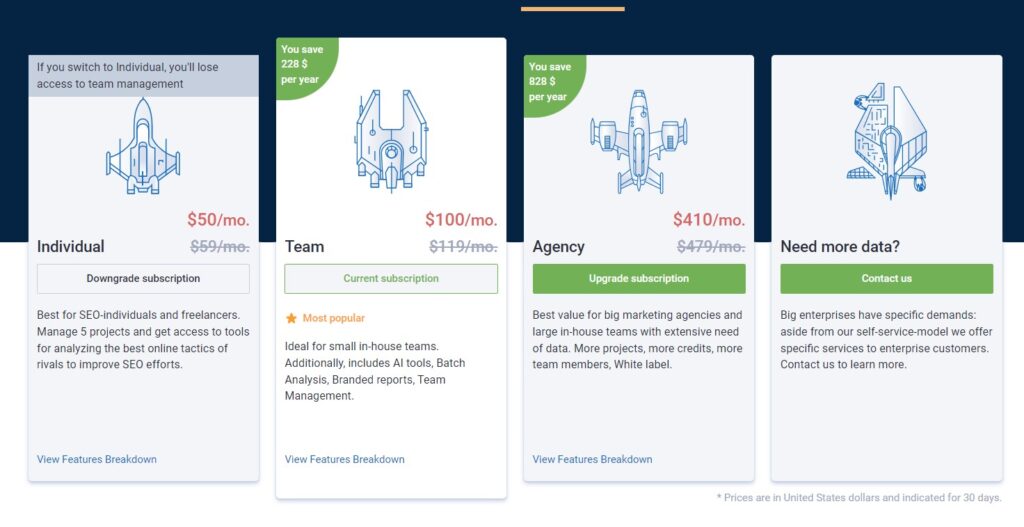
Comparative Insights
SEMrush’s plans are generally more expensive but offer a broader range of features, making them a good fit for larger companies or those needing extensive data and tools. On the other hand, Serpstat’s more affordable plans are suitable for individuals, small businesses, or anyone on a tighter budget who still needs effective SEO tools.
In summary, while choosing between SEMrush and Serpstat based on pricing and plans, consider your specific business needs, budget, and the scale at which you operate. Both tools offer flexible options, but their pricing reflects the breadth and depth of their features and capabilities.
Strengths and Limitations: SEMrush vs Serpstat
When evaluating tools like SEMrush and Serpstat, it’s crucial to understand their strengths and limitations. This insight is particularly relevant for users trying to decide between “SEMrush vs Serpstat” for their SEO and marketing needs.
SEMrush Strengths
- Extensive Data Coverage: SEMrush offers one of the largest databases for keywords and backlinks, providing comprehensive data for SEO research.
- Advanced Competitive Analysis: Its tools for competitor research are in-depth, offering insights into competitors’ strategies, traffic, and keyword rankings.
- Versatile Toolset: SEMrush is more than just an SEO tool; it encompasses features for PPC, social media, content marketing, and more.
SEMrush Limitations
- Pricing: One of the significant limitations of SEMrush is its pricing, which can be on the higher side, especially for small businesses or individual users.
- Overwhelming for Beginners: Due to its extensive features, new users might find SEMrush overwhelming at first.
Serpstat Strengths
- Affordability: Serpstat is more budget-friendly, making it an excellent choice for individuals, startups, and small businesses.
- Competitor Graph Feature: Its unique Competitor Graph offers a visual representation of the competitive landscape, which is user-friendly and informative.
- Good for Niche Keyword Research: Serpstat excels in uncovering niche keywords, which is beneficial for specific or localized SEO strategies.
Serpstat Limitations
- Smaller Database: Compared to SEMrush, Serpstat’s database is smaller, which might impact the depth of research.
- Limited PPC Features: For those heavily invested in PPC, Serpstat’s features in this area are not as extensive as SEMrush.
In summary, SEMrush is characterized by its comprehensive data and advanced features but comes with a higher price tag and a potentially steep learning curve. Serpstat, on the other hand, offers an affordable and user-friendly solution with strengths in visual competitor analysis and niche keyword research, though it may fall short in database size and PPC functionalities.
Conclusion: SEMrush vs Serpstat – Which One Suits Your Needs?
As we reach the end of our comprehensive comparison between SEMrush and Serpstat, it’s evident that both tools have their unique strengths and cater to different needs in the digital marketing landscape.
SEMrush stands out as a more comprehensive tool, offering an extensive range of features that cover various aspects of digital marketing, from in-depth SEO and PPC analysis to advanced content marketing and competitive research. Its extensive database and robust analytical tools make it an ideal choice for larger businesses or agencies that require a detailed and holistic view of their digital marketing efforts.
On the other hand, Serpstat is a strong contender, particularly for those looking for a more budget-friendly option without compromising on quality. It shines in providing essential SEO tools, including effective keyword research, competitor analysis, and site audits. Its user-friendly interface and visual data presentation make it a great choice for small to medium-sized businesses, startups, or individual marketers who need an efficient and straightforward tool to enhance their online presence.
In deciding between “SEMrush vs Serpstat,” consider your specific business needs, budget, and the scale of your digital marketing campaigns. SEMrush is well-suited for those who require a comprehensive, all-in-one tool with advanced features, while Serpstat is an excellent choice for users seeking an affordable yet competent solution for their SEO and content marketing needs.
Ultimately, both SEMrush and Serpstat offer significant value and can substantially contribute to the success of your digital marketing strategies. The choice depends on aligning the tool’s capabilities with your business objectives and resources.





Pingback: Keyword Research Services in 2024: Unlocking the Secrets to SEO Success - The Ultimate Guide - Go Blog Digital